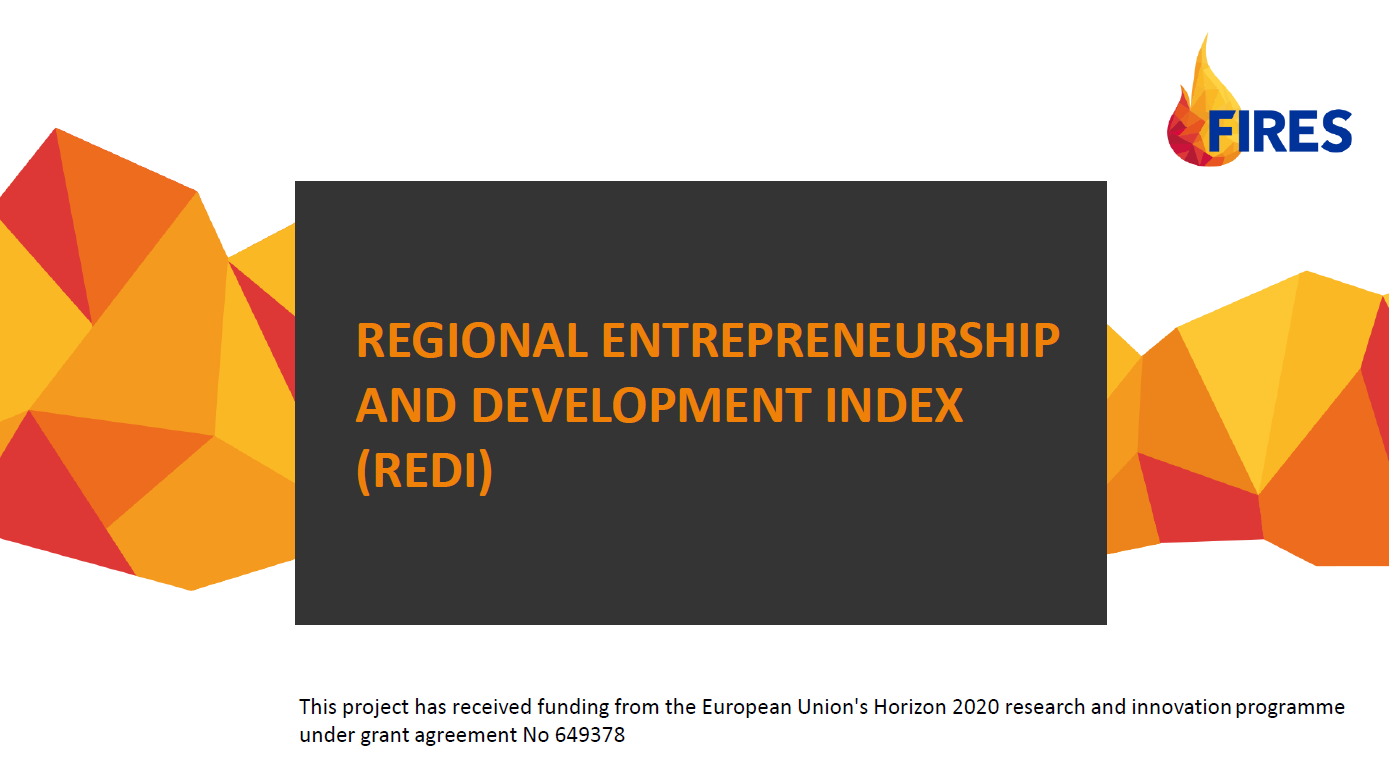Index Building and Ecosystem Analysis
GEDI’s index building and ecosystem analysis expertise has been utilized by both companies and public sector entities.
Digital Entrepreneurship Index (DEI)– measuring the digital entrepreneurial ecosystem
Presently, a significant gap exists in the conceptualization of entrepreneurship in the digital age. We introduce a conceptual framework for entrepreneurship in the digital age by integrating two well established concepts: the digital ecosystem and the entrepreneurial ecosystem. This new framework situates digital entrepreneurship in the broader context of users, agents, infrastructure and institutions, such that two biotic entities (users and agents) actuate individual agency, and two abiotic components (digital infrastructure and institutions) form the external environment.
We provide a concept-based measure of the digital entrepreneurial ecosystem, called Digital Entrepreneurship Index (DEI) consisting of four quadrants (Digital Multisided Platforms, Digital User Citizenship, Digital Technology Entrepreneurship and Digital Infrastructure Governance). These four quadrants include the key economic, business, social and policy questions: competition, security, privacy, and efficiency, respectively. Building on the National Systems of Entrepreneurship Methodology we calculate the Digital Entrepreneurship Index (DEI) for 116 countries.
The DEI is a major advancement in global index building (an index that includes over 100 countries). On the one hand, DEI does not use GEM data that is inconsistently available both across countries and over time. On the other hand, we incorporate the entire index building skills learned over the past ten years working on GEI and REDI.
Global Entrepreneurship Index (GEI)– at the forefront of entrepreneurship ecosystem measure
The Global Entrepreneurship Index (GEI) project, initiated by Zoltan J Acs (George Mason University) and László Szerb (University of Pécs) started in 2008. For a long time, dominant entrepreneurship measures were self-employment type of indicators like the GEM’s Total early-phased entrepreneurial activity (TEA). These measures have failed to provide a consistent story about the role of entrepreneurship over development. GEI came to existence to provide a solid theory-based, multidimensional entrepreneurship measure that explains the role of entrepreneurship on economic development.
The first version of the Global Entrepreneurship Index (GEI), was launched in 2009. Since then, GEI has been published in every year. Altogether, we have eleven editions reporting about the level of the entrepreneurship ecosystem for countries over five continents. The number of participating nations increased from 64 (2009) to 137 (2018, 2019), although, some of them are based on partial estimations. GEI has reached an increasing attention amongst entrepreneurship scholars, students, policymakers, and think-thank institutions. The last two versions of GEI reached over 50, 000 downloads. The eleventh issue is the final report and GEDI is not planning to publish any other GEI reports.
REDI: The Regional Entrepreneurship and Development Index – Evaluating changing ecosystems
The European commission wanted an index to measure progress in entrepreneurship at a subnational level throughout the EU. They hoped this would help understand what was and wasn’t working from a policy perspective, in order to inform policy choices and enable future evaluation of policy effectiveness with a suite of variables.
They reached out to the GEDInstitute because our group of senior faculty researchers from Imperial College London, the London School of Economics, George Mason University and the University of Pécs, Hungary has a broad and deep understanding of entrepreneurship ecosystems based on decades of research and experience. We’ve spent over 15 years creating entrepreneurship indicators for policy use, and a stable, globally calibrated methodology for combining entrepreneurship data into composite indices.
The regional entrepreneurship index we created for the EC revealed weak points both between and within regions. This allowed the European Commission to prioritize and tailor policy effort to suit individual strengths and weaknesses across the EU, and gave them a measurement tool to evaluate progress into the future.



